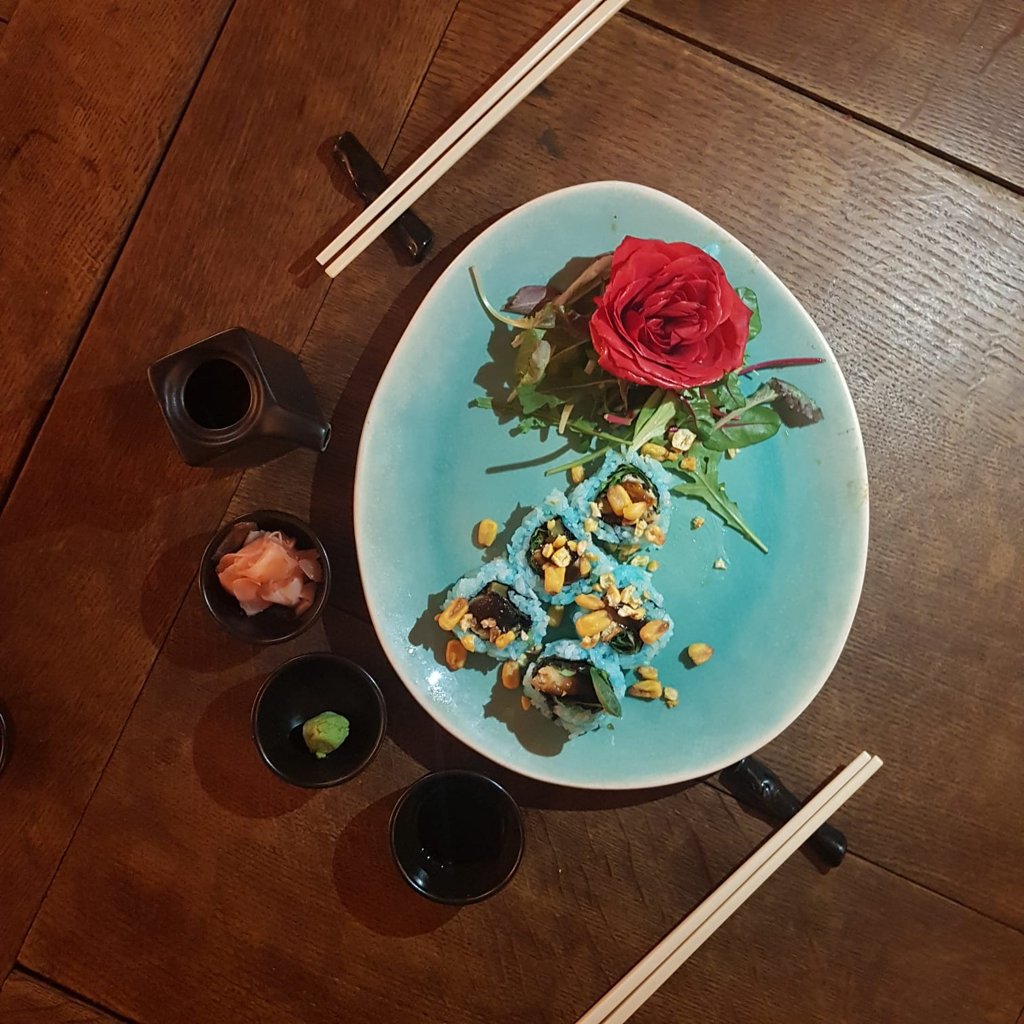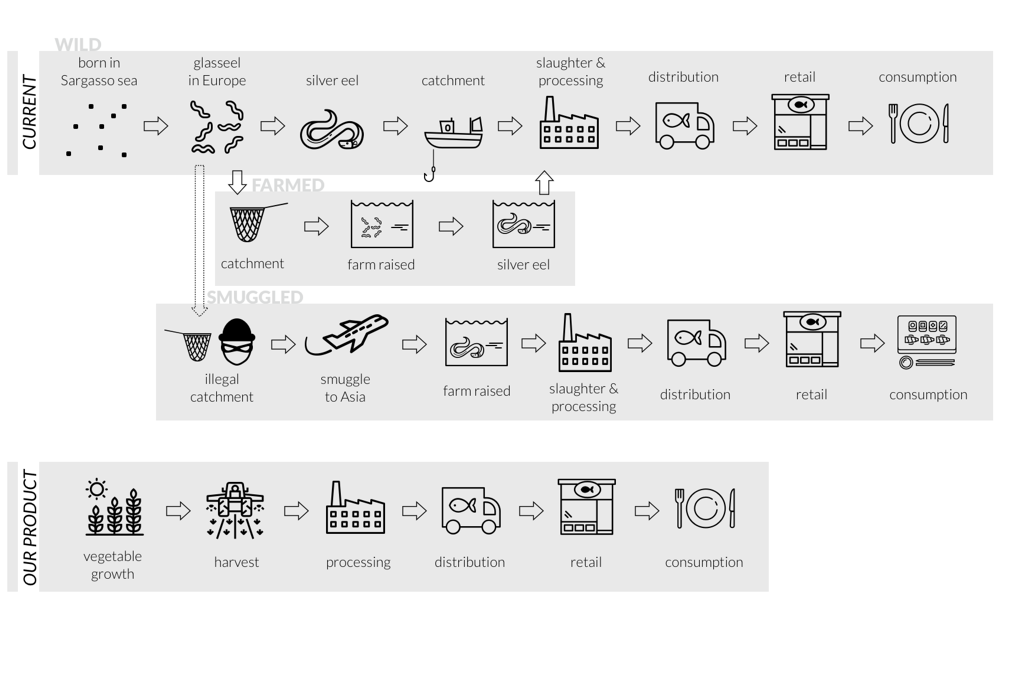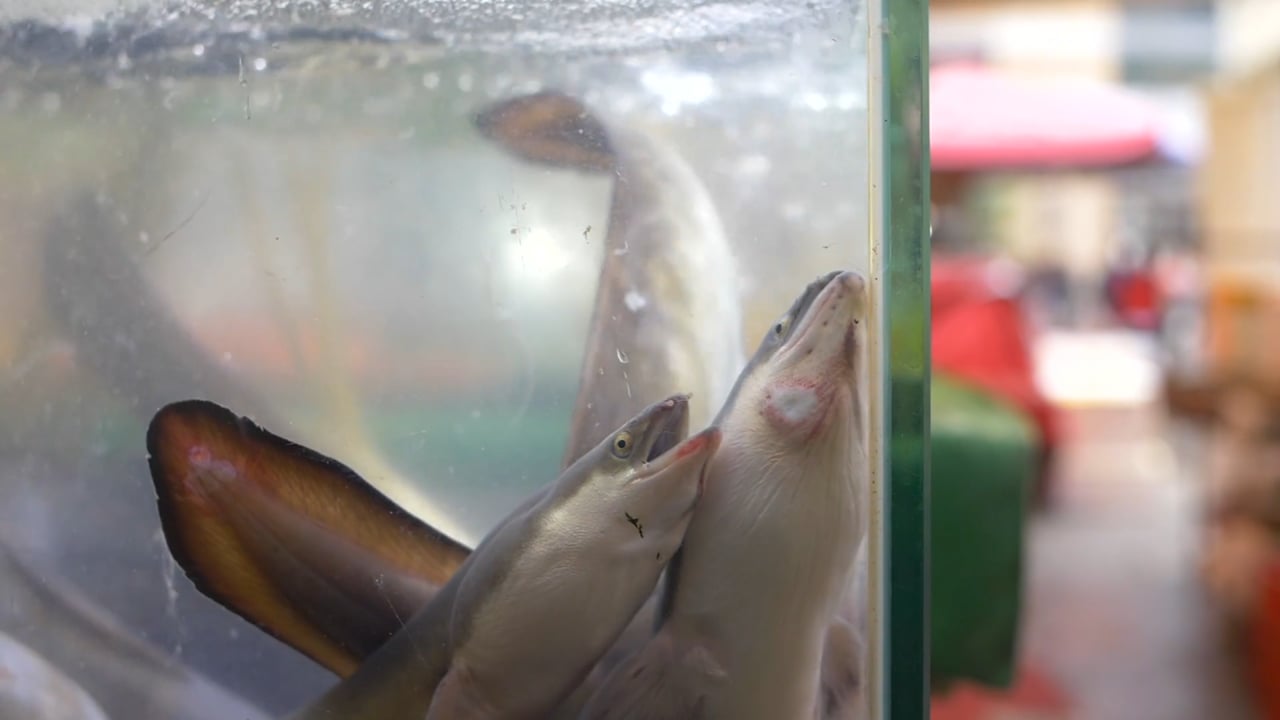Human food consumption has a hugely negative impact on the environment. This is problematic because food is generally produced outside of cities, far from the watchful eye of the public. We, as consumers, are currently unaware what food production really entails. This is especially evident for the fishing industry. This research takes marine life and ecosystems as a starting point, and focuses on one extraordinary fish in particular: the eel. Over the past 50 years, the European eel population has declined dramatically and is currently threatened with extinction. Due to its unique characteristics, there is no alternative fish that can be consumed as an alternative to eel. Therefore, in order to prevent eels from extinction, a sustainable alternative must be developed.
Over the course of eight months, the team developed a plant-based alternative to eel. Research shows that eel is increasingly consumed on sushi (nigiri unagi), so the product is currently geared towards that market. However, there are other food niches where there is potential for impact. This plant-based eel is the result of co-creation. It has been developed in collaboration with food scientists and entrepreneurs, NGO Good Fish, knowledge institutes, and sushi restaurants.
Although it was difficult to take all interests into account, the project team attempted to make everyone feel heard. Work continues towards improving the product both in terms of taste and sustainability. The aim is to use sustainably sourced ingredients and energy efficient production methods to reduce the overall impact of the food product. This is an iterative process with experiments and learnings.
This project focuses on the invisible impact of seafood consumption which usually stays below the surface, both literally and figuratively. This means examining the consequences of the consumption and smuggling of eel, which has a key role in many regional eating habits and diets. If we continue fishing for eel in the same way, the European eel will become extinct.
We will not only lose its delicate and unique flavour, but also the many jobs and traditions that depend on it. Eel fishing is just one of many examples of anthropogenic pressure on marine ecosystems. By developing a plant-based alternative to eel, we hope to add to the current debate about the impact of human consumption and accelerate the transition towards more sustainable food habits.




